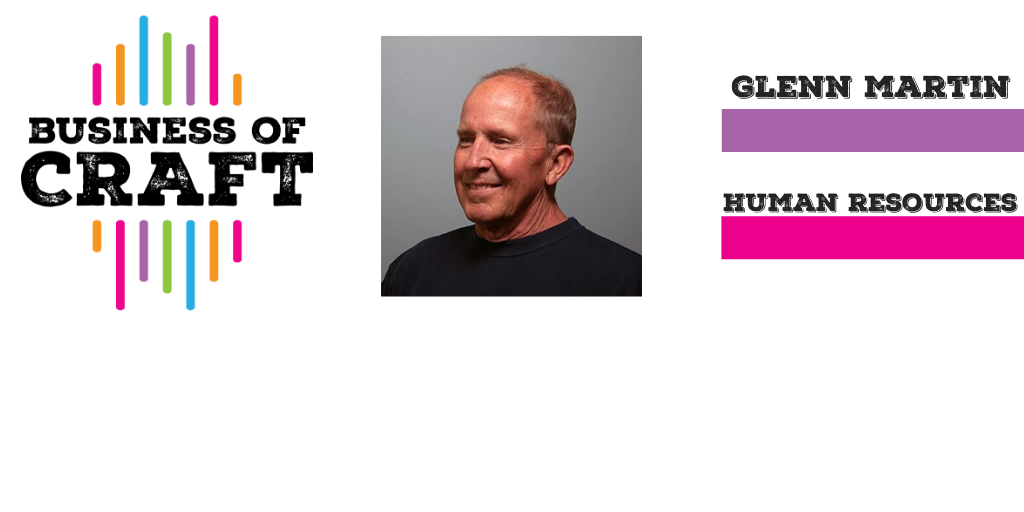 WELCOME TO SEASON 2 OF BUSINESS OF CRAFT
WELCOME TO SEASON 2 OF BUSINESS OF CRAFT
Welcome everyone to the second season of Business of Craft where our theme is wantrepreneurship— and our episodes are covering all the baby steps you need to take to launch your new business in 2020.
My guest today is Glenn Martin, a business consultant with over 30 years of experience working for companies such as Hitachi Sata Systems, Sun Microsystems, IBM and Apple. In 2002 he founded Trakstar, a human resource software application which he grew to 250K online users in 35 countries before he sold the company in 2016. Glen is formally retired but lends his expertise as a counselor with the Central Mountain Small Business Development Center here in Colorado.
Listen to the Show:
Listen to it on Spotify, iHeartRadio, iTunes, Stitcher, or Google Podcasts.
Thank you for taking the time to listen! If you’re enjoying the show, it’s safe to assume there are others out there like you who would also enjoy the show. Help them find it. Click here to rate and review the show on iTunes.
#1 You have to have good people to make a great company. Let’s start with some of the basic language and structure. Let’s start with a business of one. What are the pros and cons of keeping your business as a sole proprietorship? [3:20]
#2 Once your business grows, you might find that you can’t do it all yourself and you’ll need some help. Let’s walk our listeners through the difference between contractors and employees? [9:20]
#3 I was reading recently that unfair pay is one of employees biggest complaints. So if you don’t know how much a prospective employee should be paid, what’s your advice to new business owners to getting that right when they’re out there hiring folks? [14:11]
#4 I always use the metaphor of “the right people in the right seats on the right bus” when I describe a good fit for my people. Do you have any tips for listeners when they begin to search for that perfect fit person? [18:14]
#5 Do you recommend any other tools to evaluate people like Strength Finders or other personality tests? [21:13]
#6 Let’s talk about company culture for a minute. You hear a lot of experts say that you have to convey your culture right from the start. How do you recommend new business owners do that if they’re brand new and maybe they don’t know what it might be yet? [25:00]
#7 One thing I’ve been intrigued by reading about lately is that not everyone has the same “motivational currency” at work– meaning that you might have someone really motivated by high salary but someone else who just wants flex time to be with kids after school. How do you think CEO’s should go about figuring out what their team will respond to best with regard to compensation and benefits? [28:29]
#8 I think one area new business owners stumble is in being overstaffed. Are there revenue ratios or other formulas you can suggest people use in determining how many people is the right amount of staff? [33:00]
#9 I also think another mistake is hanging on to mediocre people too long. They never realize keeping those people on because they can’t imagine firing them for personal reasons. What’s your advice on that? [37:20]
 WELCOME TO SEASON 2 OF BUSINESS OF CRAFT
WELCOME TO SEASON 2 OF BUSINESS OF CRAFT
